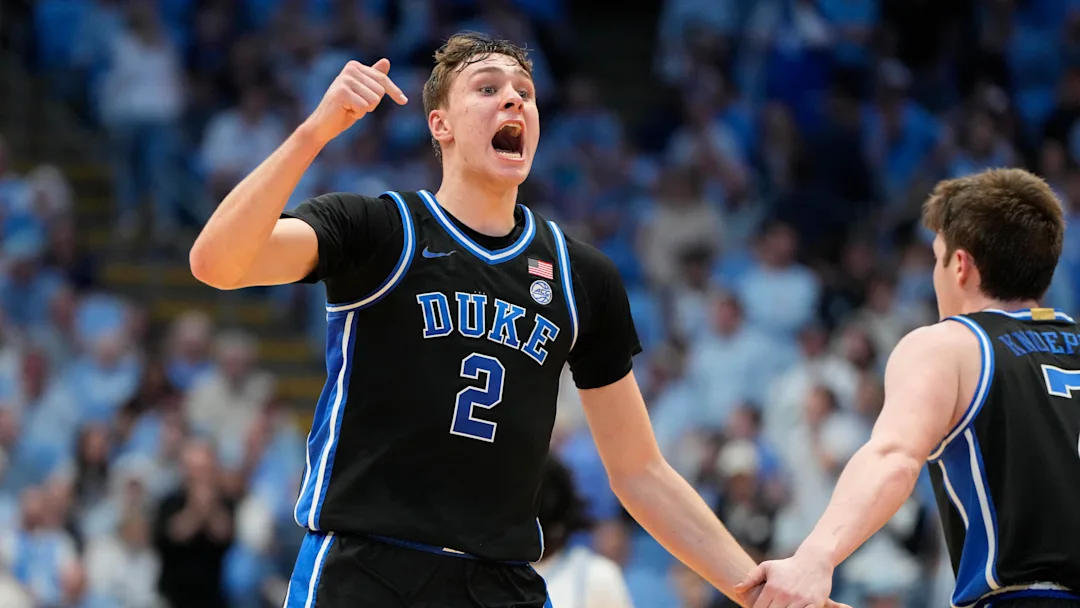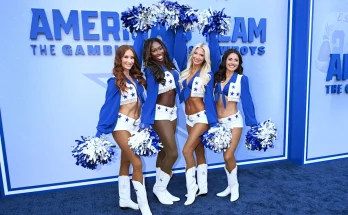There are plenty of numbers that define the greatness of Duke basketball—five national championships, 17 Final Four appearances, 28 regular season ACC titles, and the unmistakable presence of legendary coach Mike Krzyzewski. But now, there’s one number that may stand taller than the rest, because it might never be caught. With their most recent win, Duke Basketball etched its name into the history books with 1,000 wins in Atlantic Coast Conference play, becoming the first program in the history of the league to reach that milestone.
In the grand scheme of college basketball, where traditions run deep and rivalries define legacies, few records can truly be called untouchable. But this one? This might just be it.
The ACC is widely regarded as one of the most storied conferences in college basketball history. From the Tobacco Road rivalries to the iconic matchups in the Dean Dome and Cameron Indoor Stadium, every year of ACC basketball adds another layer of rich narrative. So when Duke became the first team to reach 1,000 ACC wins, it wasn’t just a numerical achievement—it was the culmination of generations of excellence.
This wasn’t built overnight. It wasn’t even built in a single era. This is the result of decades of sustained dominance, fueled by Hall of Fame coaching, relentless recruiting, elite player development, and a program culture that demands greatness from every player who dons the Duke blue. From the days of Dick Groat and Art Heyman to Grant Hill and Christian Laettner, to JJ Redick and Shane Battier, and more recently Zion Williamson and Paolo Banchero, the names read like a who’s who of college basketball royalty.
Mike Krzyzewski’s imprint on this record cannot be overstated. Coach K is responsible for more than 600 of those wins himself, a staggering contribution that helped define the golden age of Duke basketball. Under his guidance, Duke didn’t just win—they dominated. The Blue Devils became a national brand, a team that transcended college sports and found themselves at the center of cultural conversations, whether it was March Madness, NBA Draft night, or even presidential shoutouts.
But what makes this 1,000-win mark so fascinating is the context in which it was achieved—and why it may never be replicated. College basketball is changing. The transfer portal, conference realignment, and one-and-done culture have shifted the dynamics of how programs are built. Traditional powerhouses are being challenged not just by emerging mid-majors, but also by the internal pressure to adapt or fall behind. And the ACC itself? It’s not the same league it once was.
Once composed of tight-knit rivals mostly in the southeastern U.S., the ACC has ballooned into a sprawling, coast-to-coast conference with the addition of teams like Syracuse, Pitt, and Notre Dame, and now even Stanford and Cal joining the fray. The geography is different. The scheduling is different. The rivalries have, in some cases, grown colder. With fewer annual matchups against traditional opponents and a rotating schedule that limits some historical continuity, the opportunity for other programs to steadily stack ACC wins has become much more complicated.
Then there’s the matter of coaching stability. No other program in the ACC has had anything like the 40-year stretch of excellence that Krzyzewski brought to Duke. Programs like North Carolina have had their own dynasties, of course, and Roy Williams helped the Tar Heels remain a national force for two decades. But consistency at the very top level is rare. It’s one thing to be good for a few years. It’s another thing to be elite for four decades.
Duke’s continued success after Coach K’s retirement is perhaps even more of a testament to the program’s foundation. Jon Scheyer has taken the reins and seamlessly transitioned into the head coaching role with poise, recruiting savvy, and an ability to connect with a new generation of athletes. Duke has remained a consistent Top 10 program, continued to produce NBA talent, and held its own against elite competition across the country.
In that context, the 1,000-win mark becomes even more impressive. It’s a symbol of not just what was accomplished in the past, but what’s being preserved in the present. It signals to recruits, fans, and rivals alike that Duke isn’t going anywhere. They are—and remain—a standard bearer of excellence in the college basketball world.
When fans packed into Cameron Indoor Stadium to witness the win that sealed the milestone, it felt like more than just another victory. It was a celebration of identity, of heritage, and of a journey that spans generations. There were fans in attendance who remembered the early years of Coach K, others who grew up in the Laettner-Hurley era, and younger ones who idolize Cooper Flagg and the current crop of future stars.
This milestone also serves as a rallying cry. It’s not just about looking back. It’s about challenging the future to meet the standard. Programs like Virginia, Miami, NC State, and Florida State all have rich histories in their own right, but they remain miles behind in the win column. Even North Carolina, Duke’s biggest rival and closest peer in many ways, would need a monumental run of dominance to match this figure anytime soon. And with the ever-changing structure of the sport, who’s to say they’ll even get the opportunity?
The landscape of college basketball in 2025 is vastly different than what it was in 1985 or even 2005. Conference schedules are shorter. Non-conference slates often pull attention away from traditional ACC showdowns. And with the rise of mega-conferences, even more changes are likely on the horizon. Will the ACC even look the same in 10 years? Will a new era of realignment disband or dilute conference play to the point where this kind of record is no longer even possible?
That’s why Duke’s 1,000th ACC win feels so permanent. It’s not just an achievement—it’s a monument. A mark in history that may never be erased or eclipsed. It speaks not only to the wins themselves, but to the resilience, evolution, and competitiveness of a program that has never settled for anything less than greatness.
It’s also poetic that this record comes at a time when Duke is once again a championship contender. With stars like Caleb Foster, Jared McCain, and the dominant presence of Cooper Flagg rewriting the expectations for freshmen in Durham, the Blue Devils aren’t just living off history—they’re creating it anew. The 1,000-win mark isn’t a farewell to greatness; it’s a reminder that the foundation is as strong as ever.
For fans of college basketball, milestones like these offer a rare opportunity to reflect on what makes the sport special. In an era of shifting loyalties and blurred lines between amateurism and professionalism, there remains something deeply inspiring about a tradition built brick by brick, game by game, win by win. Duke’s 1,000 ACC victories represent more than a number on a scoreboard. They reflect a culture of hard work, unrelenting ambition, and a pursuit of excellence that has few parallels in the modern game.
There will always be debate about which program is the greatest in college basketball history. Some will point to UCLA and its run under John Wooden. Others to Kentucky and its all-time win total. North Carolina has its own proud case to make, and Kansas is never far from the discussion. But when it comes to ACC play—a conference that has consistently fielded some of the toughest competition in the country—Duke now stands alone.
And so, while other teams chase titles and build their legacies, Duke can proudly look at this number—1,000—and know that it reflects something enduring, something earned, and something future generations will look at with awe. It’s a legacy written in sweat and strategy, forged in rivalries and buzzer-beaters, and immortalized in the rafters of Cameron Indoor.
This record isn’t just Duke’s to celebrate. It belongs to every player who dove for a loose ball, every coach who outworked the competition, and every fan who made the pilgrimage to Durham to witness greatness firsthand. Duke may have just claimed an ACC record that will stand forever—and the rest of the conference is left chasing shadows.



